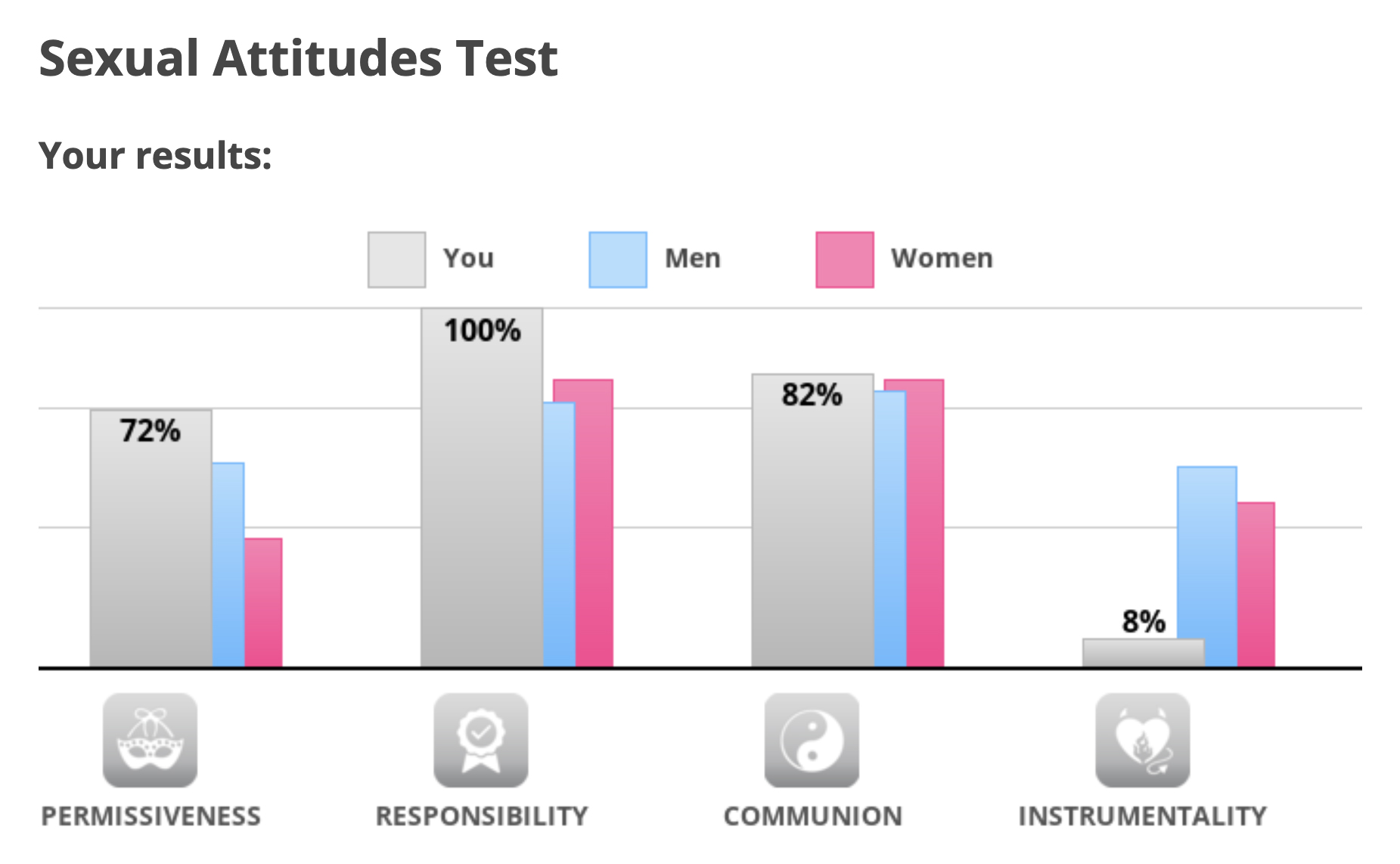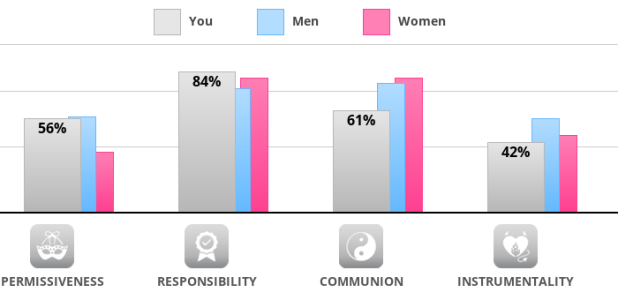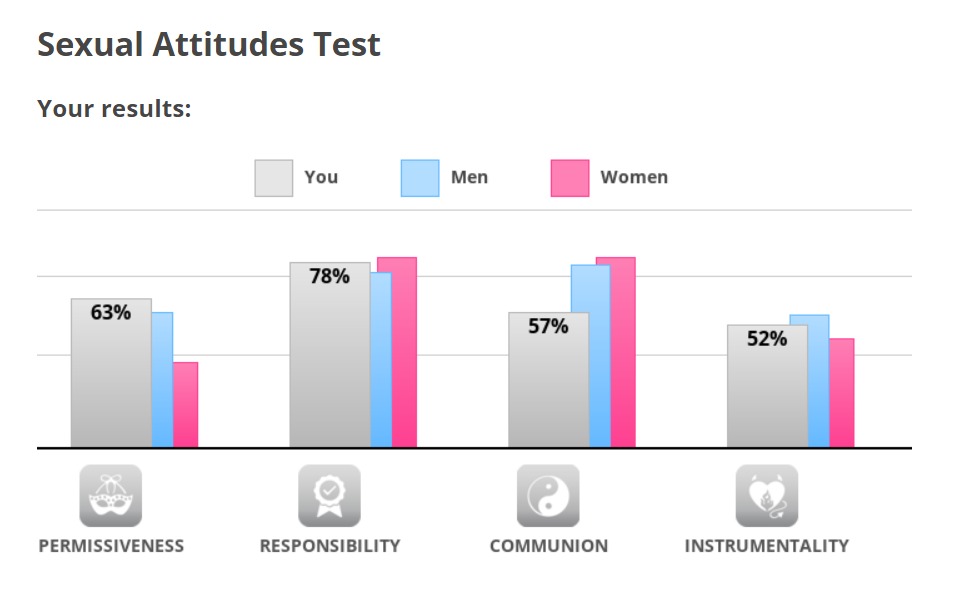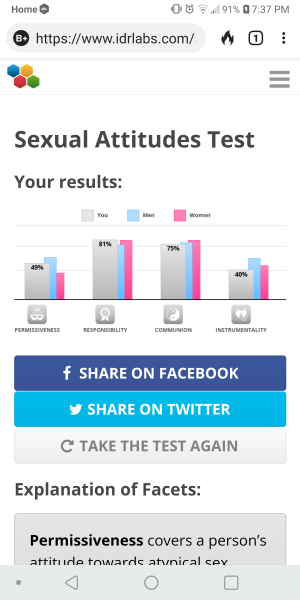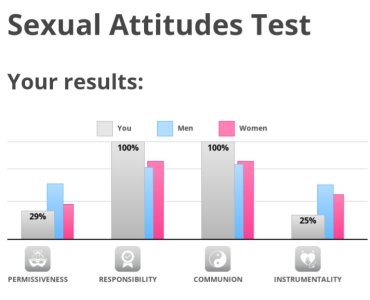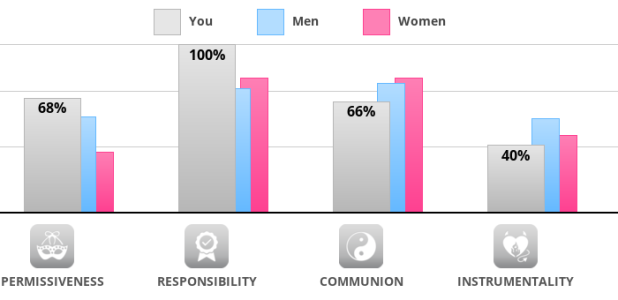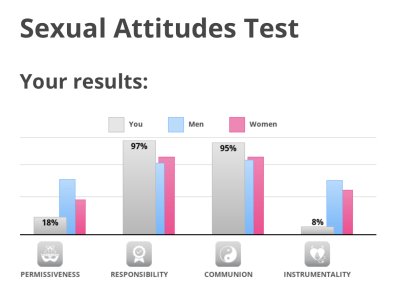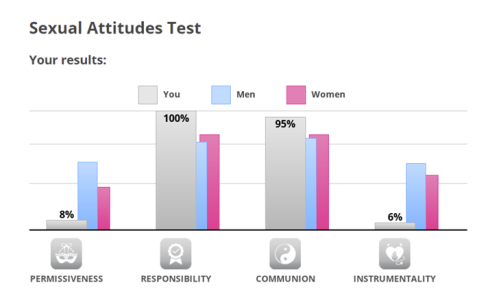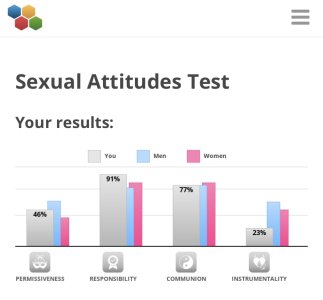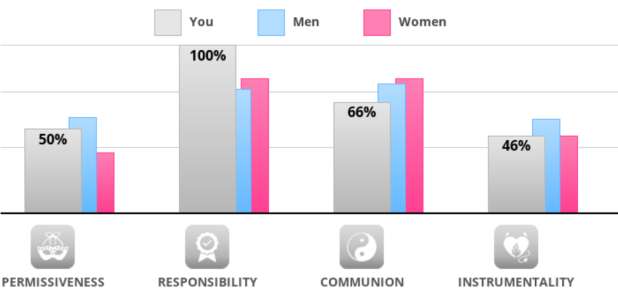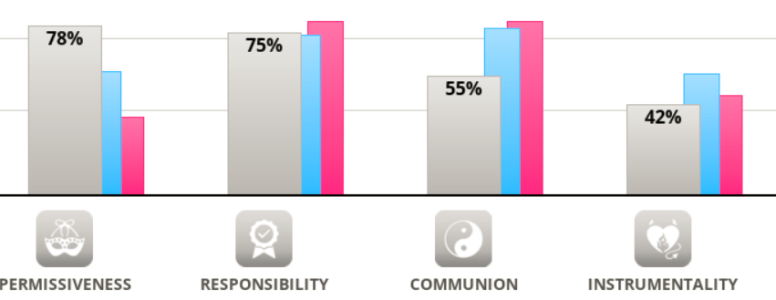- MBTI
- ENFP
- Enneagram
- 947 sx/sp
Sexual Attitudes Test – IDR Labs
immediate results, no email required
Cheers,
Ian
-------
The 4 Facets:
Permissiveness covers a person’s attitude towards atypical sex practices, extensive premarital sexual experience, and infidelity. Higher scores indicate a welcoming attitude toward these practices, while lower scores indicate a more reserved stance. People high in permissiveness are likely to have had more sexual relationships than average; to have engaged in a wider variety of sexual practices; and to believe that love isn’t necessarily a prerequisite for sex.
Responsibility denotes a person’s propensity to engage in sexually responsible behavior. People who score high on responsibility tend to be strong believers in the importance of intimate verbal communication with their partners; to ensure that consent for various sexual practices is properly obtained; and to believe in the importance of sharing responsibility for birth control.
Communion refers to a person’s longing to “fuse together” with their romantic partner. People who score high on communion tend to see emotional and idealistic elements in sex that are not shared by people who score lower on communion. People high in communion tend to place as much of a premium on sex as a means of bringing them closer to their partner as they do on the actual pleasure itself. A subset of the people who are very high in communion also believe that love is a necessary prerequisite for sex.
Instrumentality reflects a person’s tendency to see sex as a means of obtaining personal pleasure, even at the expense of their partners. People high in instrumentality often see sex as a contest and may be liable to use deceit or manipulation to get what they want. They tend to have a somewhat cynical view of sex and comparatively little interest in developing emotional intimacy with their partners.
immediate results, no email required
Cheers,
Ian
-------
The 4 Facets:
Permissiveness covers a person’s attitude towards atypical sex practices, extensive premarital sexual experience, and infidelity. Higher scores indicate a welcoming attitude toward these practices, while lower scores indicate a more reserved stance. People high in permissiveness are likely to have had more sexual relationships than average; to have engaged in a wider variety of sexual practices; and to believe that love isn’t necessarily a prerequisite for sex.
Responsibility denotes a person’s propensity to engage in sexually responsible behavior. People who score high on responsibility tend to be strong believers in the importance of intimate verbal communication with their partners; to ensure that consent for various sexual practices is properly obtained; and to believe in the importance of sharing responsibility for birth control.
Communion refers to a person’s longing to “fuse together” with their romantic partner. People who score high on communion tend to see emotional and idealistic elements in sex that are not shared by people who score lower on communion. People high in communion tend to place as much of a premium on sex as a means of bringing them closer to their partner as they do on the actual pleasure itself. A subset of the people who are very high in communion also believe that love is a necessary prerequisite for sex.
Instrumentality reflects a person’s tendency to see sex as a means of obtaining personal pleasure, even at the expense of their partners. People high in instrumentality often see sex as a contest and may be liable to use deceit or manipulation to get what they want. They tend to have a somewhat cynical view of sex and comparatively little interest in developing emotional intimacy with their partners.

